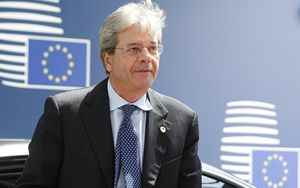(Finance) – “If the country that is considered as the one that has benefited the most if it comes out asking for an extension, it would be the conclusion of this experiment. If it works, it can be repeated. But the basis for doing so is that we continue . And things are progressing well. The country has so far been allocated 30% of the resource package. If Italy raised its hand saying it needs an extension, it would not be making a bad impression. It would be like putting in discussion one of the strategic and important turning points of the European Union “.
In his speech at the Turin International Economy Festival, the European Commissioner for Economic Affairs, Paolo Gentiloni, categorically excludes thehypothesis of an extension for Italy on the commitments undertaken with Europe for the NRP.
“The answer is no, in two letters – he stressed Gentiloni -. Mario Draghi and government representatives have rightly reiterated this many times. Not because there are no factors that can justify some amendments, corrections, which take into account inflation and the challenges concerning energy independence. The government does not think at all about asking the EU for an extension. The whole country must be committed to doing the NRRR, not to postpone it. Everyone is struggling, but objectives, deadlines, time schedules must be respected. Difficulties must be addressed head-on and resolved “.
In the current scenario for Gentiloni, the fact that Dragons represents a guarantee for markets and for the country’s reputation. “There is not the slightest doubt that Draghi represents a guarantee for the markets and reputation. Not only in Brussels. The point is that, if we work well and the Government insists on its determination, we can achieve results that we also obtain in Brussels. ‘use of the extraordinary resources of the NRP is a new guarantee. We have internalized the European bond and it will be extremely important for anyone who governs in the coming years in Italy. and help us transition into the future “.
Commenting on the fluctuations in the spread Gentiloni affirmed that “they must not be considered more than what they are: a signal from the markets, but rather contained. What we must take into consideration – he continued – is that Italy is one of the six European countries with high debt. the problem is the level of debt which can create instability in the markets. The EU says we must be careful about making unjustified, permanent increases in current spending. This will lead us in the coming weeks, immediately after the summer, to open the discussion on the path to debt reduction and, therefore, on the new rules of the stability pact “.
On the energy transition front, Gentiloni called it “a devastating mistake” to put aside the European “green deal”, to overcome the dependence of most of the EU countries and face rising costs. “There is a way – he said – to add an energy emergency chapter to the NRP”.
Analyzing theimpact of the war in Ukraine Gentiloni stated that the sanctions will have consequences for the Russian economy. “There will be enormous consequences. In the medium and long term they will be devastating – said the European Commissioner for Economic Affairs -. But I would not delude myself that the sanctions will stop the tanks”. For Gentiloni on sanctions it will be possible to find an agreement at European level. “The European decision-making process is difficult and very tiring, but let’s keep it tight – said the European Commissioner -. Europe is doing its part very well – he said referring to the sanctions packages against Russia – the effort to build The consensus on our proposals is enormous. One of the 27 countries is not yet on board. We are working on it and I believe that in the end we will be able to find an agreement “. According to Gentiloni, the Russia “runs the risk of a technical default in the coming weeks. It faces a 10% recession this year. Can we go much further with sanctions? We will see. We must keep a balance with the cost that these measures represent for us “.
